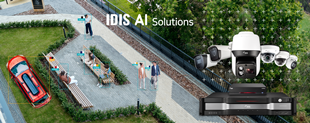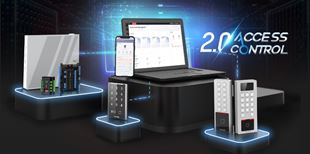While 70% of 1000 senior decision makers in IT, security, FM and HR roles agree this to be the case, 78% also anticipate their organisations’ use of cloud technologies to increase in the future as a result of Covid-19.
The independent survey, commissioned by hosted security provider Morphean, revealed that over three-quarters (76%) of senior managers in UK, Germany and Sweden have increased their use of video conferencing (e.g. Microsoft Teams); 65% have increased their use of office applications (e.g. Microsoft 365); and 70% of those in the security sector are now strongly inclined towards cloud adoption. Morphean has published more detailed results in a published whitepaper: Landscape Report 2020/21: Hosted Security adoption in Europe.
Rodrigue Zbinden, CEO of Morphean SA, commented: “The results highlight a hosted physical security market that will see strong growth in 2021 as cloud applications are proven to deliver business continuity in challenging times. At the height of the lockdown, many business premises were unoccupied and potentially vulnerable, but remote monitoring and maintenance made possible by hosted security were a welcome advantage. We also saw a spike in demand for frictionless access control enabling a totally hands-free experience and negating the need for physical contact. Business leaders will now be considering the learnings from the past year and looking to apply them to boost productivity, streamline costs and make organisations more agile.”
Analytics to drive adoption
For the security professional already working with cloud services, the growth in connected digital devices through the IoT is resulting in a growing appetite for physical security, such as network cameras, to enhance existing IT systems and assist business intelligence gathering. 95% agree that if an existing security system could deliver insights beyond security to assist decision making (i.e. occupancy or test and trace analytics), it would influence adoption.
Flexible and remote working on the increase
More flexibility in working locations is the benefit respondents are most likely to identify from moving business functions to the cloud (50%), followed by easier collaboration (44%); more cost-effective (44%); safer / better security (38%). 82% anticipate the levels/frequency of remote workers and flexible working in their organisations to be higher post-pandemic and in the longer term than they were pre-pandemic.
Security will need to be enhanced to facilitate greater flexibility in worker patterns. An access control solution which is linked to HR records, for example, can check the swipe of an access card against staff records. A staff member who is flagged as being on leave, absent or no longer employed will trigger an automated alert to the relevant personnel. Surveillance cameras also provide secondary authentication through visual clarification of an individual’s identity.
The ‘Landscape Report 2020/21: Hosted Security adoption in Europe’ is the third study of its kind by Morphean, and aims to facilitate a better understanding of market trends with comparative data from 2018 and 2019.
Key findings
Other key findings revealed by the study shows that 78% anticipate organisational use of cloud technologies to increase in the future as a result of Covid-19; and the security sector reflected a strong inclination towards cloud adoption (70%); 27% said physical security was optimised in their companies, a rise of 4% on 2019 (23%); and the retail sector was least likely to say that physical security was optimised (19%).
Interestingly, the VSaaS/ACaaS uptake was shown to be more prevalent in Sweden with 59% already utilising such services, with 34% in the UK and 31% in Germany considering it.
Rodrigue Zbinden concludes: “For the physical security reseller, the study will demonstrate that hosted security solutions must play a major part in expanding their offering to a wiser customer base. Cloud-enabled physical security solutions represent an investment into improving security and operations, a chance to forge new business relationships, and an opportunity to embrace future proof technologies in preparation for whatever challenges the future might hold."

















